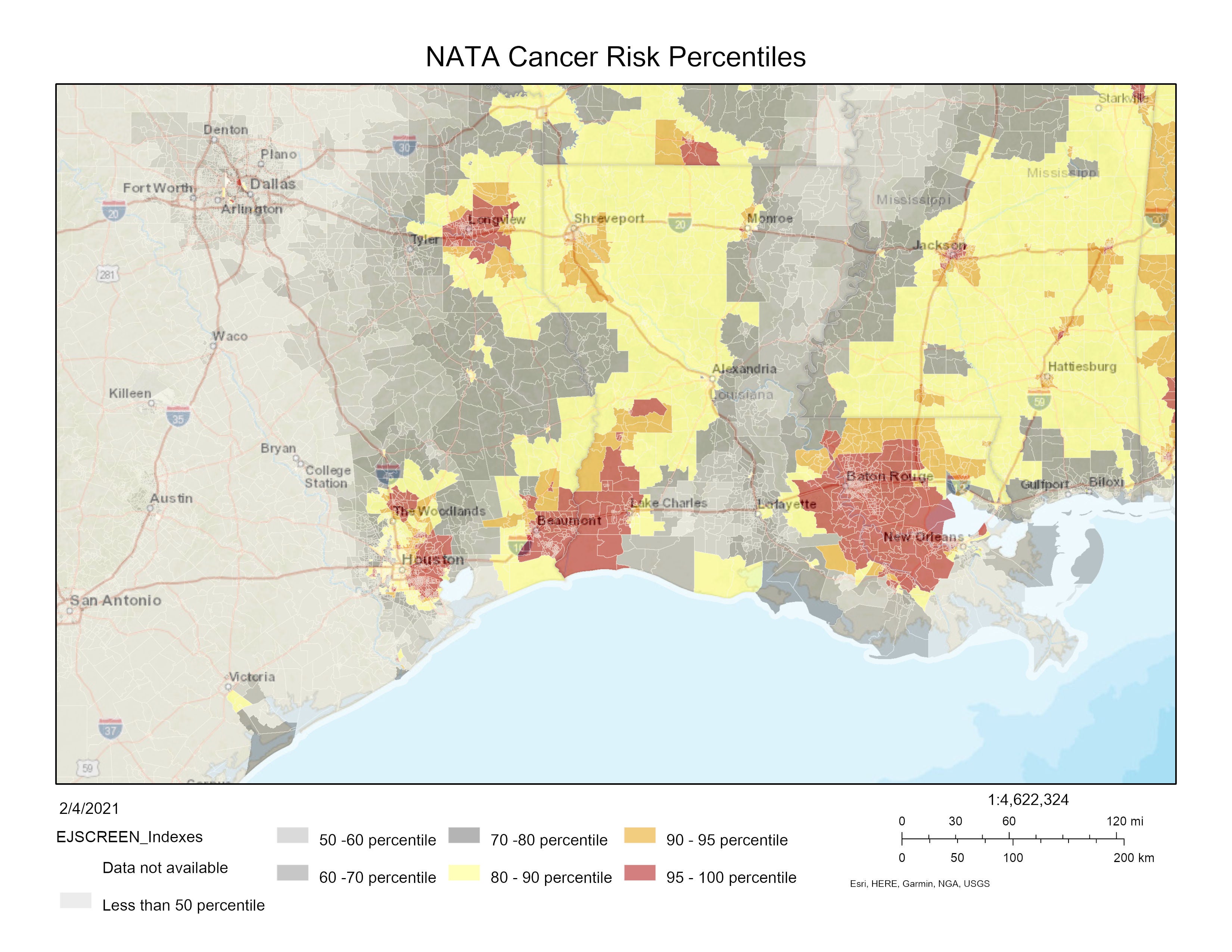‘A slam upon our state’: Republican senator takes offense to Biden’s remarks on Louisiana’s ‘Cancer Alley’
Senator Bill Cassidy said Louisiana's higher rates of cancer than other states was not down to the petrochemical industry but "lifestyle choices"

Your support helps us to tell the story
From reproductive rights to climate change to Big Tech, The Independent is on the ground when the story is developing. Whether it's investigating the financials of Elon Musk's pro-Trump PAC or producing our latest documentary, 'The A Word', which shines a light on the American women fighting for reproductive rights, we know how important it is to parse out the facts from the messaging.
At such a critical moment in US history, we need reporters on the ground. Your donation allows us to keep sending journalists to speak to both sides of the story.
The Independent is trusted by Americans across the entire political spectrum. And unlike many other quality news outlets, we choose not to lock Americans out of our reporting and analysis with paywalls. We believe quality journalism should be available to everyone, paid for by those who can afford it.
Your support makes all the difference.A Republican senator from Louisiana has taken offense to President Joe Biden’s recent reference to the state’s “Cancer Alley”.
During a call with reporters this week, Senator Bill Cassidy called the description a “slam upon our state”.
“I'm not going to accept that sort of slam upon our state,” Sen Cassidy said, according to Nola.com. “It sounds like great rhetoric. But again, I don't accept that slam."
“Cancer Alley” has long been used to refer to a corridor along the Mississippi River between New Orleans and Baton Rouge where for decades the petrochemical industry has built vast facilities.
Since the late Eighties, the "fenceline communities" bordering those plants - overwhelming communities of color and low-income households - have noticed clusters of cases of cancers and other health issues.
According to the Environmental Protection Agency's 2014 National Air Toxics Assessment (NATA), five census tracts of St John the Baptist Parish, located along the petrochemical corridor, had the highest risk of cancer in the US.
And a 2019 analysis from ProPublica revealed that air quality was getting worse in Louisiana due to new industrial plants “increasing concentrations of cancer-causing chemicals in predominantly black and poor communities”.
Anne Rolfes, director of the Louisiana Bucket Brigade, an environmental health and justice watchdog, tweeted: "Way to stand up for public health Bill Cassidy. Let's compare your meetings with the Louisiana Chemical Association with the number of visits you've paid to residents along Cancer Alley."

At the White House last week, President Biden signed a number of executive orders to tackle the climate crisis and environmental pollution.
He noted that "environmental justice will be at the center of all we do addressing the disproportionate health and environmental and economic impacts on communities of color, so-called 'fenceline communities', especially those communities, brown, black, Native American, poor whites".
"The hard-hit areas like Cancer Alley in Louisiana, or the Route 9 corridor in the state of Delaware,” Mr Biden said.
Sen Cassidy, who is a medical doctor, acknowledged that Louisiana had higher rates of cancer than other states.
However he said that it was not to do with industrial pollution but rather due to cigarette smoking, bad diets, and viral infections.
“We have a higher incidence of cigarette smoking, of obesity, of certain viral infections, and other things which increase the incidence of cancer in our state,” the Republican said.
“So whenever you speak of Cancer Alley ... you have to do what is called a regression analysis to separate out those factors … and several others that could be an alternative, and a more typical explanation for why some folks may have cancer. When you do that, the amount of cancer which is left unexplained is pretty marginal.”
Gail LeBoeuf, an environmental and civil rights activist in St James Parish which is also located along the industrial stretch, said that she was used to “victim-blaming”.
“We hear it a lot down here — that we can’t be trusted to know what’s hurting us,” Ms LeBoeuf told Nola. “It’s always ‘blame the folks’ - the poor, Black folks - for their own demise.”
The senator's office did not respond to a request for comment by The Independent at the time of publication.
Greg Bowser, president of the Louisiana Chemical Association, echoed Sen Cassidy, calling President Biden's remarks "disappointing" and said that Cancer Alley was a "misnomer of a name what is not rooted in fact".
He then claimed that the Louisiana Tumor Registry, administered by Louisiana State University's School of Public Health, "shows that the rates of cancer in this Industrial Corridor are at or below the rest of the state".
However Dr Kimberly Terrell, from Tulane Environmental Law Clinic, told The Independent in an email that EPA data from the 2014 NATA, and the 2019 Risk Screen Environmental Indicators, show that Cancer Alley is overburdened with cancer risk from pollution.
"The industry’s defense seems to be that no one has connected these risk estimates with actual numbers of cancer cases 'on-the-ground' in Louisiana," Dr Terrell wrote. "The problem is that there have not been any robust studies of this relationship. There has been very little research done in Cancer Alley, and one challenge is that a lot of these fence-line communities are small.
"You need large populations for robust epidemiological research. Instead, the burden should be on industry to prove that it’s safe to live in Cancer Alley, particularly given that what little evidence we have (ie EPA risk estimates) clearly indicates that Cancer Alley is overburdened with the risks of pollution."
Join our commenting forum
Join thought-provoking conversations, follow other Independent readers and see their replies
Comments